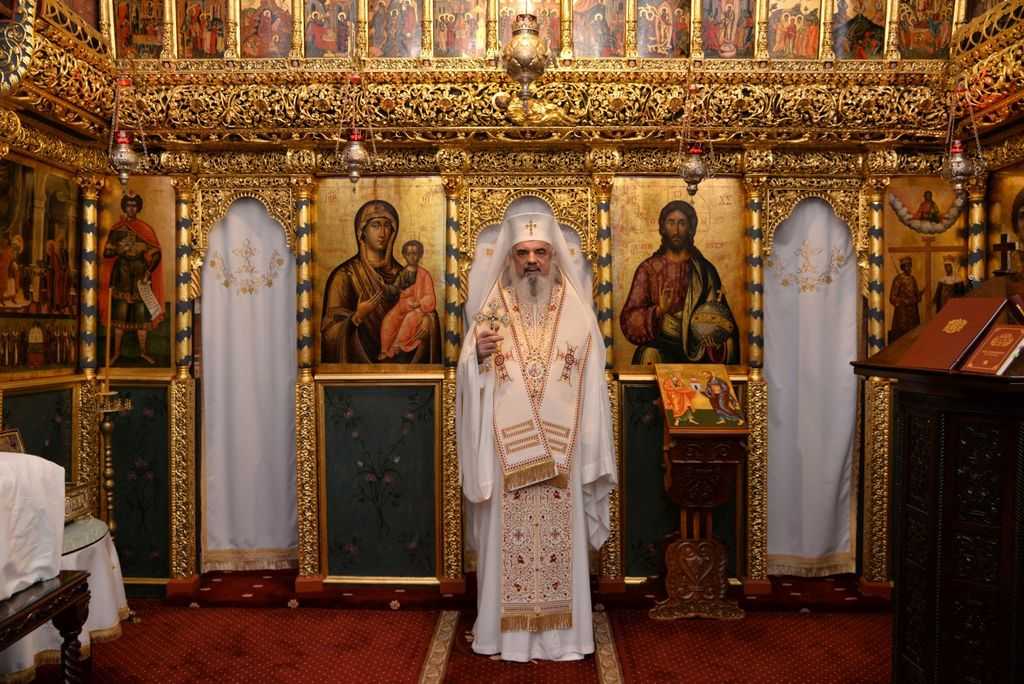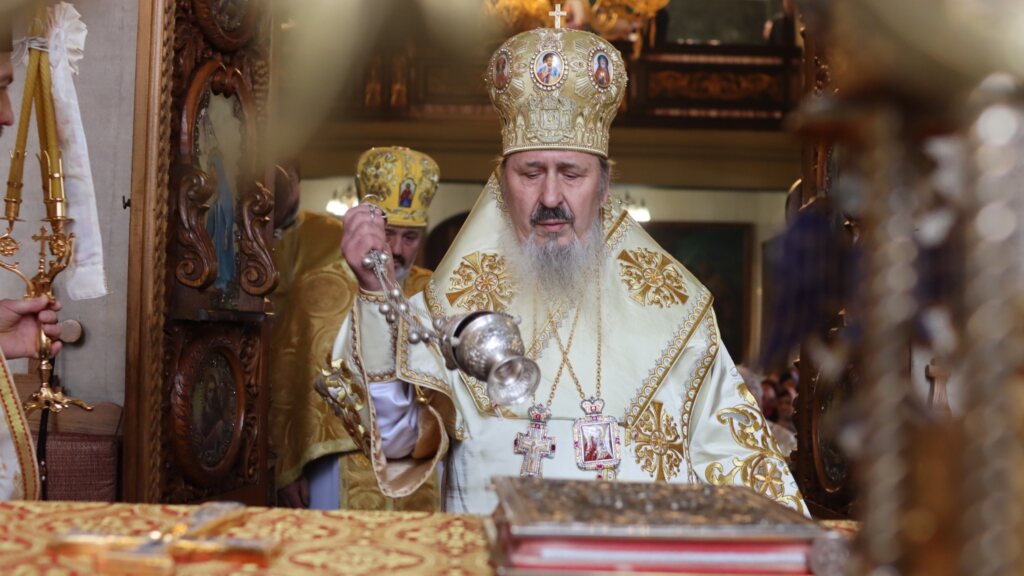In his homily delivered on the Feast of the Holy Apostles Peter and Paul, Patriarch Daniel offered his reflections on the life and ministry of the two great missionaries, a former angler and a former rabbi who were transformed into fishers of men and were united through their sacrificial love for the sake of Christ.
His Beatitude Patriarch Daniel attended the Divine Liturgy celebrated on 29 June 2017 at the St George Chapel of his patriarchal residence.
His Beatitude divided his homily into two parts first presenting the life of St Peter, and then the missionary work of St Paul.
The patriarch recalled that Saint Peter was the son of Jonas, an angler from Bethsaida, and the brother of Saint Andrew the First-Called. He was initially called Simon, but after calling him to preach the gospel, Christ changed his name into Cephas (Aramaic) or Petros (Greek), which means stone.
When he was called to become a fisher of men, Peter followed Christ without asking any questions, without negotiations. He was obedient because the voice of God the Word was that calling him to a divine ministry, the patriarch said.
St Peter was the eldest of the Apostles, he was very close to Jesus Christ and he often took the floor and spoke on behalf of the other disciples.
Because he was so close to the Saviour, Saint Peter had also much courage. He was fiery-tempered, but his courage was full of devoutness and respect for Jesus Christ, the patriarch added.
Saint Peter denied the Saviour three times when he was drawn to judgment, but then he repented crying bitterly and was restored in his apostolic ministry through the threefold question Do you love me?
Saint Peter preached the gospel in Jerusalem, Judea, Samaria, then in Antioch, Pontus, Galatia, Cappadocia, in Asia and Bithynia, finally in Babylon. In the last part of his life, Peter went to Rome where he suffered a martyr’s death, being crucified upside down on 29 June 67, during the persecution of the pagan Roman emperor Nero.
Saint Peter the Apostle is a preacher, an intercessor, and a wonder worker, the patriarch noted. The Holy Spirit that he received from Christ not only gave him courage, but also merciful and humble love that can be observed in the healings of the sick that he performed.
Saint Paul was a Jew born in Cilicia from wealthy parents. Apostle Paul was a learned man who had studied at the school of the famous scholar Gamaliel of Jerusalem. He became a rabbi and learned from his parents to manufacture tents.
First bearing the name of Saul, Christ changed his name into Paul when He called him to become Apostle to the Gentiles.
The patriarch went on to reflect on the conversion of Saint Paul and on his missionary activity.
Saint Paul the Apostle was a fiery rabbi who wanted to destroy the new Christian community. On the way to Damascus, a powerful light from heaven blinded him and he fell to the earth and heard Christ’s voice saying unto him: Saul, Saul, why persecutest thou me? (Acts 9: 4). Thus, Christ called Saul to his apostolic mission.
To the surprise of all the Jews who knew him, Paul began to preach in Damascus that Jesus of Nazareth was the Son of God. In order not to be killed by them, he fled to Arabia, where he prepared for preaching for three years, by fasting, praying and studying the Holy Scriptures, the patriarch noted.
After this time, he connected with the Apostles in Jerusalem and began his missionary work that lasted for thirty years. Saint Paul preached the Gospel in his native places (Tarsus of Cilicia), and then he went together with his disciple Barnabas on three great missionary trips to Syria, Asia Minor, and Europe.
To the end of his life, Saint Paul suffered great suffering being imprisoned in Caesarea of Palestine, and then two times in Rome. He eventually suffered a martyr’s death by decapitation, not by crucifixion, because he was a Roman citizen and he was given the right to die a good death (bona mors).
Saint Paul the Apostle is considered to be the greatest missionary of the Church of all times, impressive not only through the depths of his writings but also through his zeal, His Beatitude emphasized.
Although the two Apostles of Christ are different in their theological, spiritual and cultural education, they resemble in their sacrificial love of Christ the Saviour. Both have confessed the deity of Christ and have loved Him unto death. They both have shared the care for the Church and the defense of the true faith and its unity.
Patriarch Daniel added that a great virtue of the two Apostles was repentance.
Peter denied Christ three times out of fear, saying that he did not know Christ, while Paul persecuted the Church of Christ. That is why both Apostles have regretted their acts and have repented all their lives. It seems as if they always wanted to recover these mistakes through their missionary zeal.
The patriarch ended his speech by conveying name day wishes to all those who bear the names of Saints Peter and Paul, wishing them good health and salvation, peace and joy, many and blessed years.
© ZL






